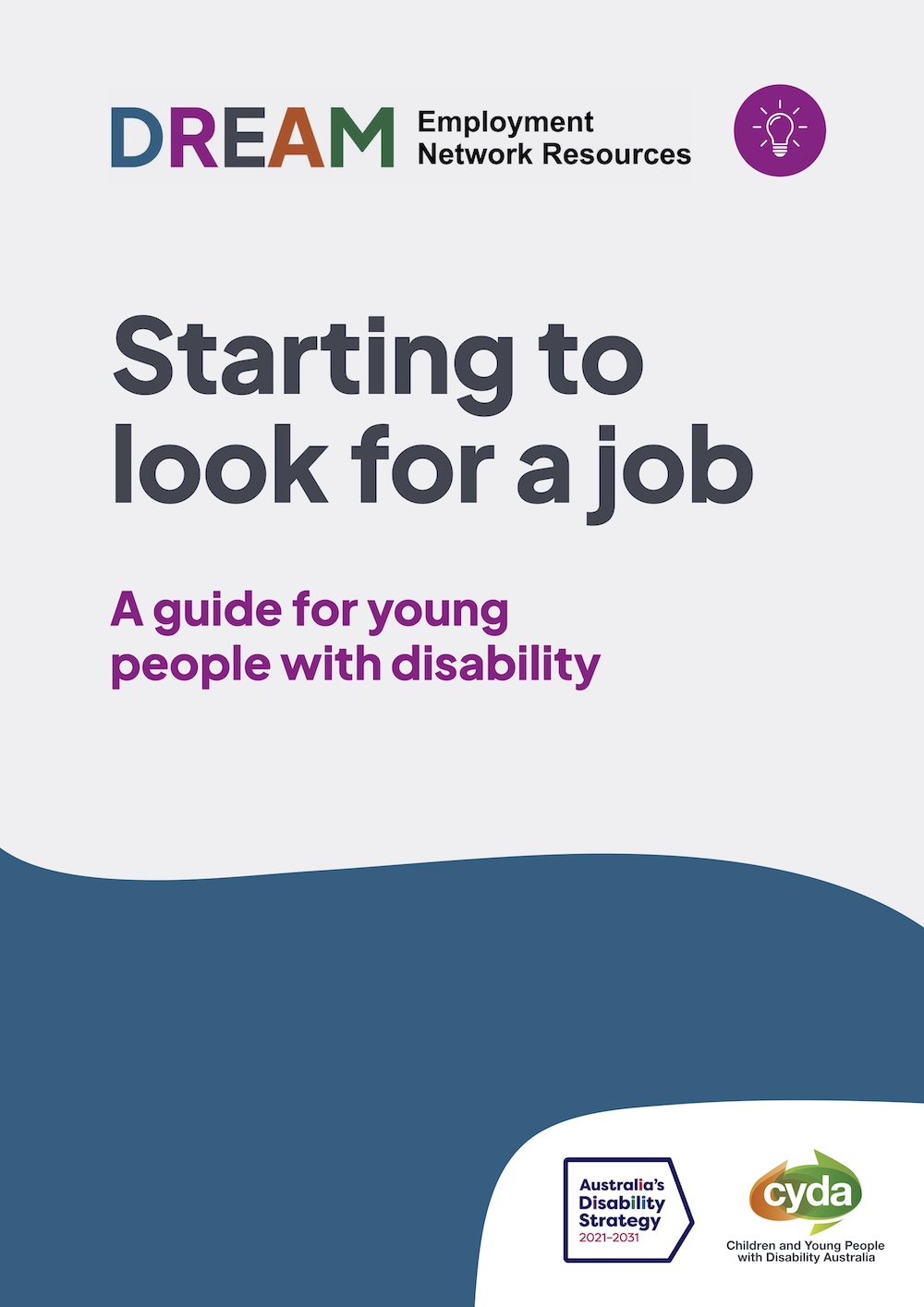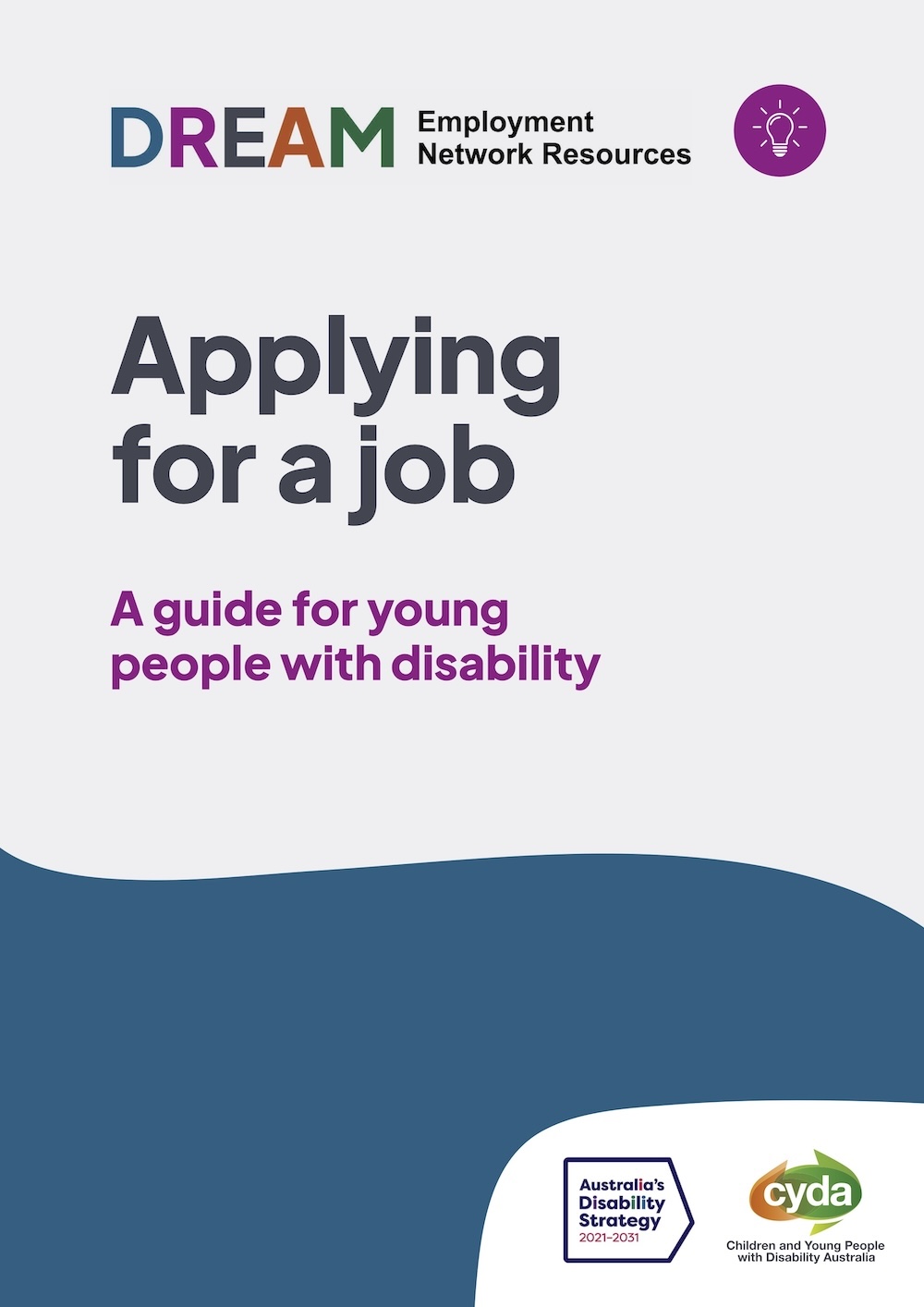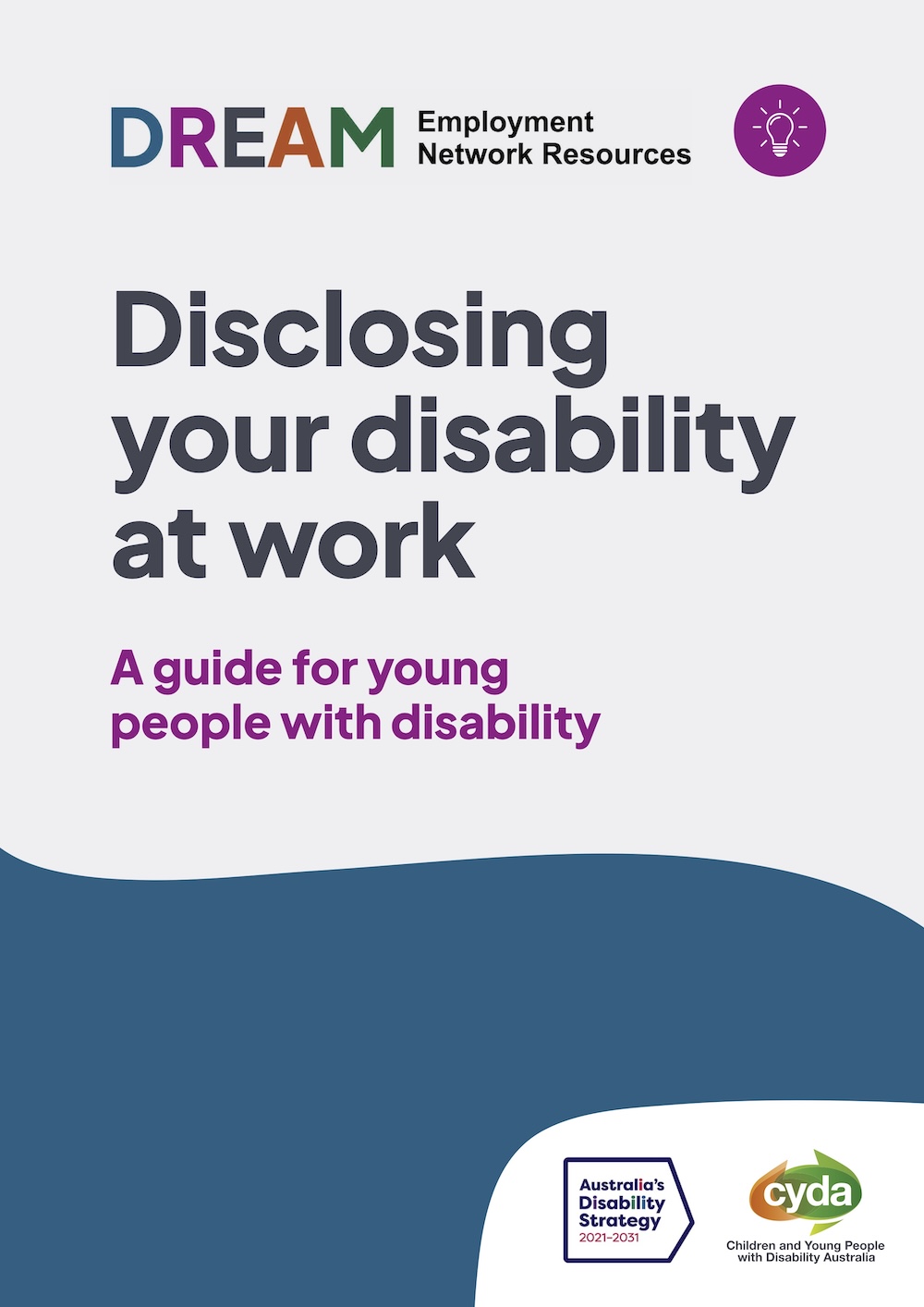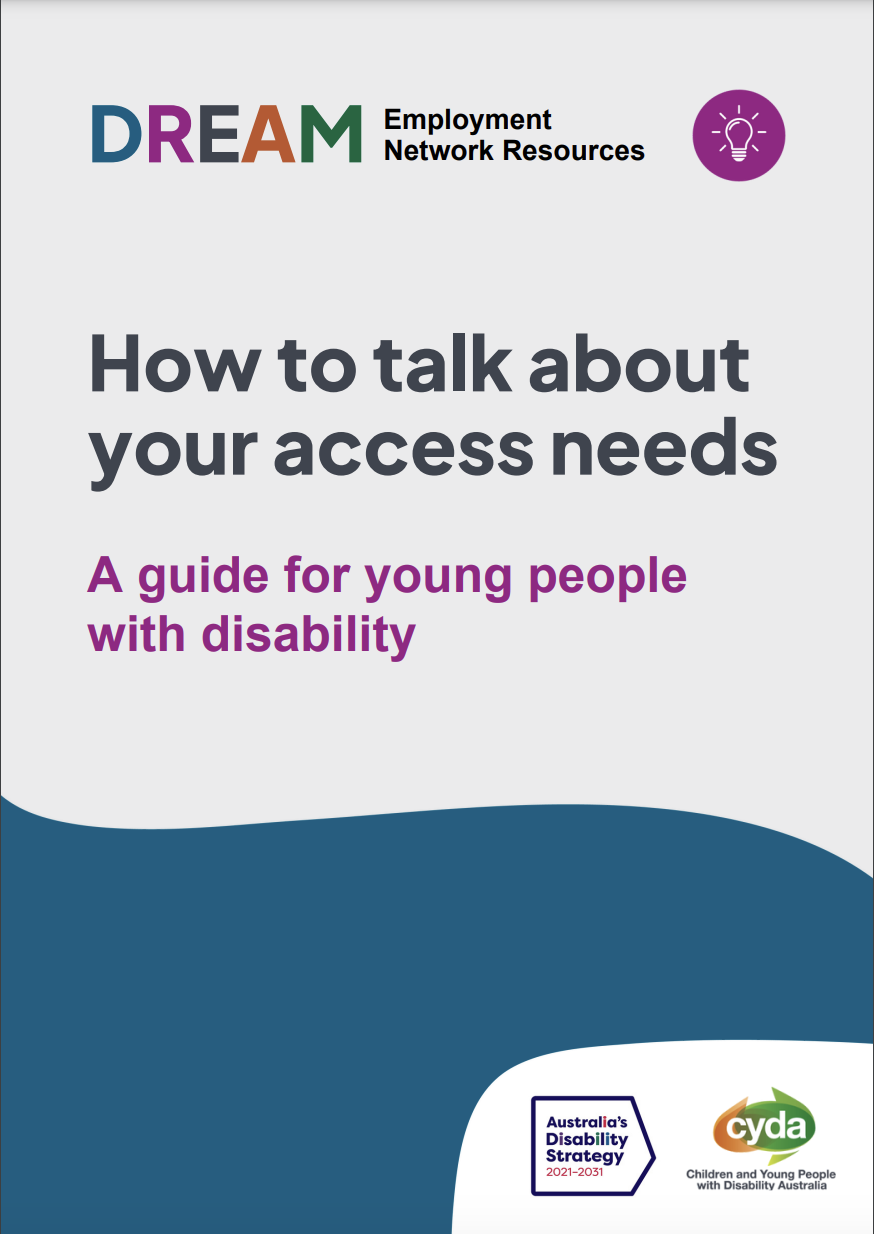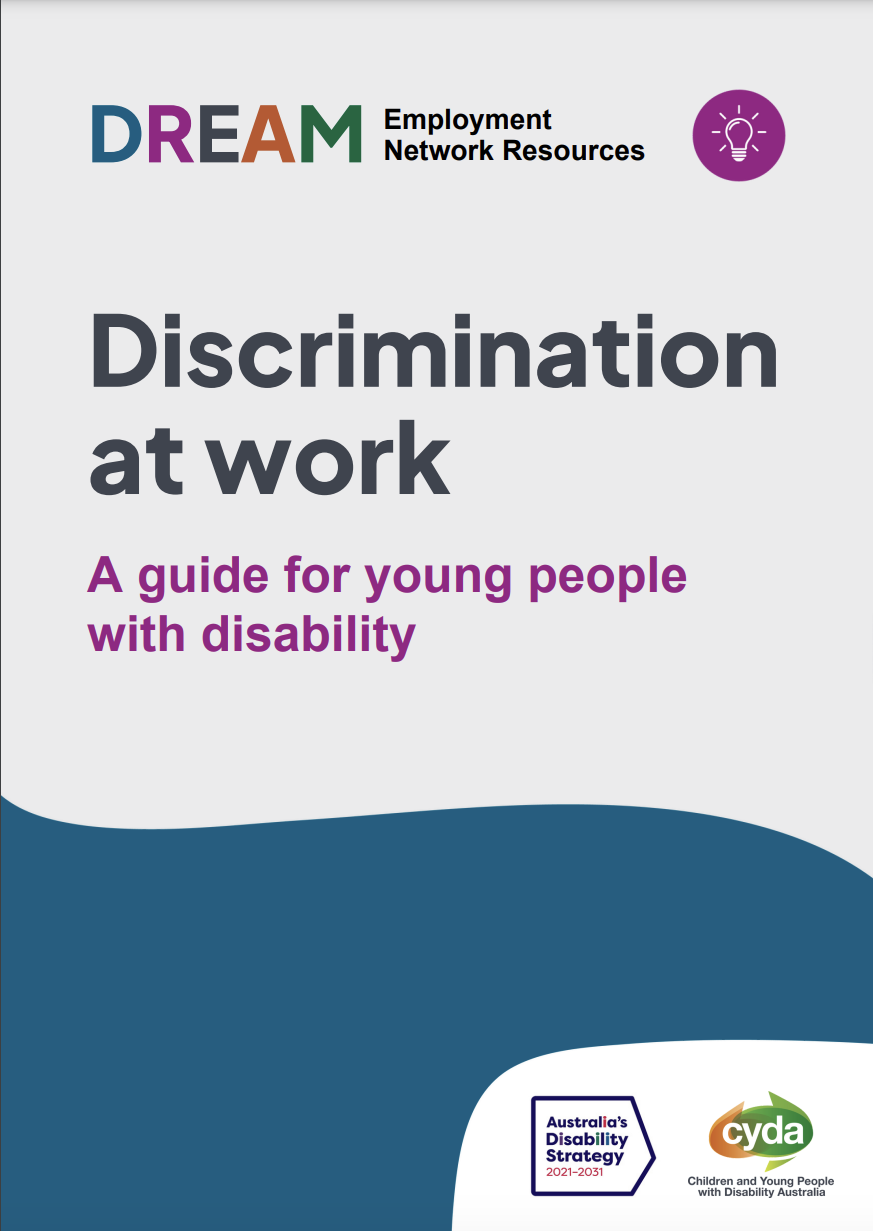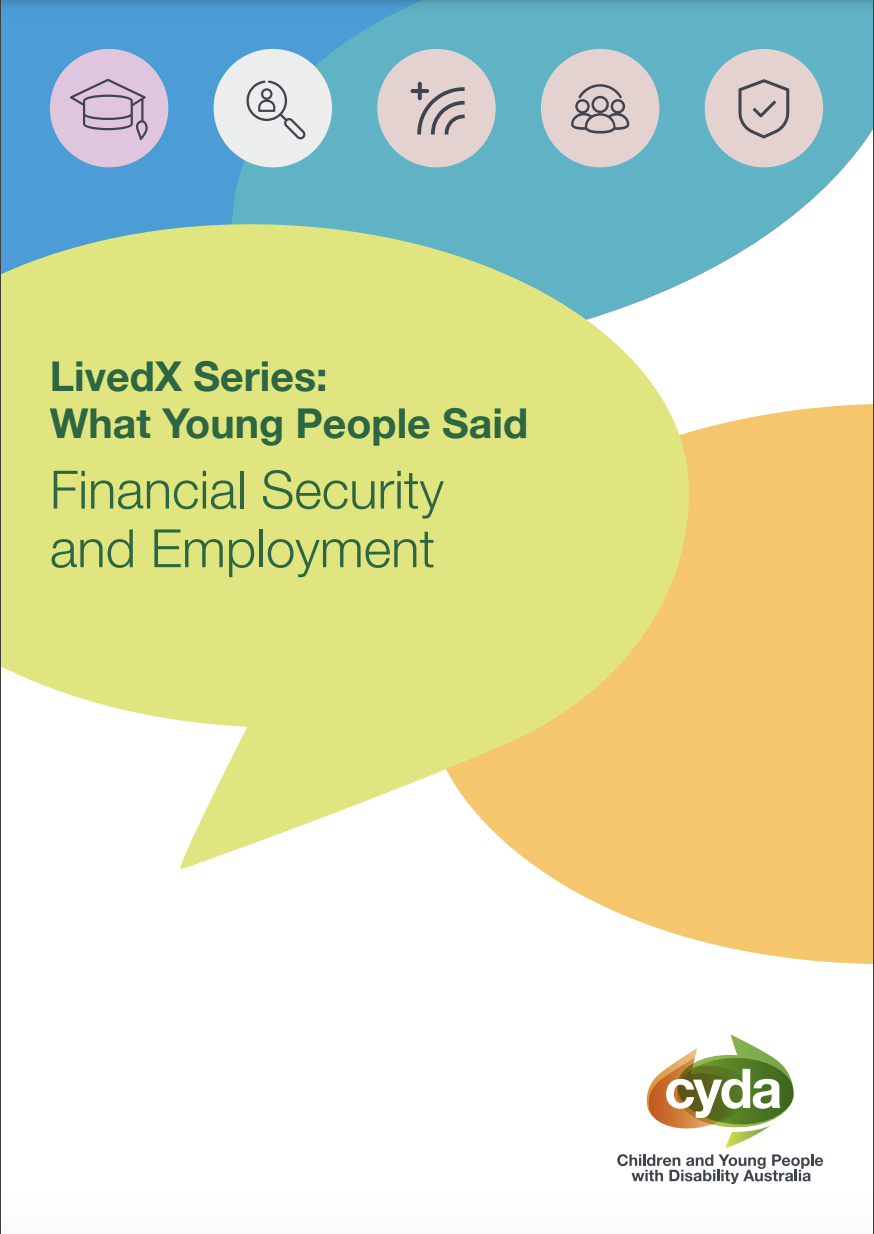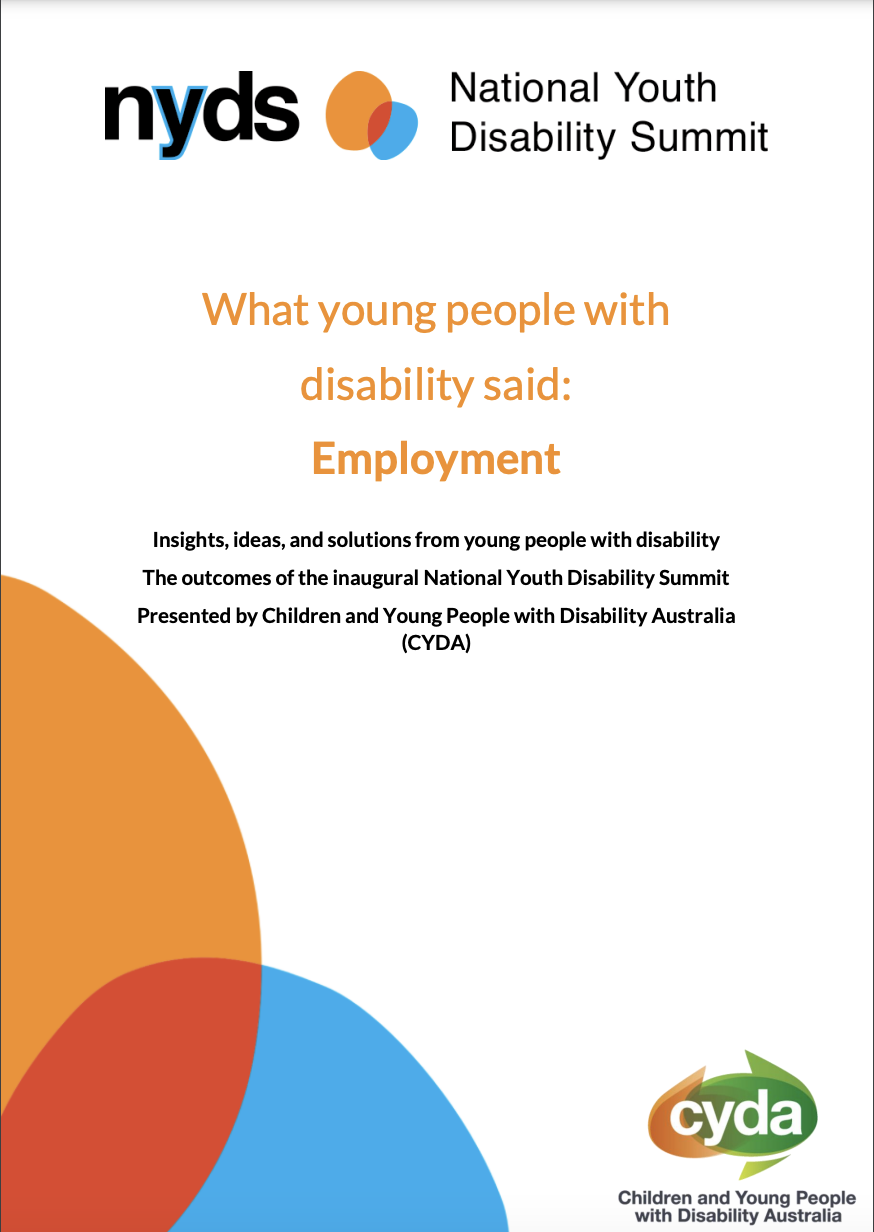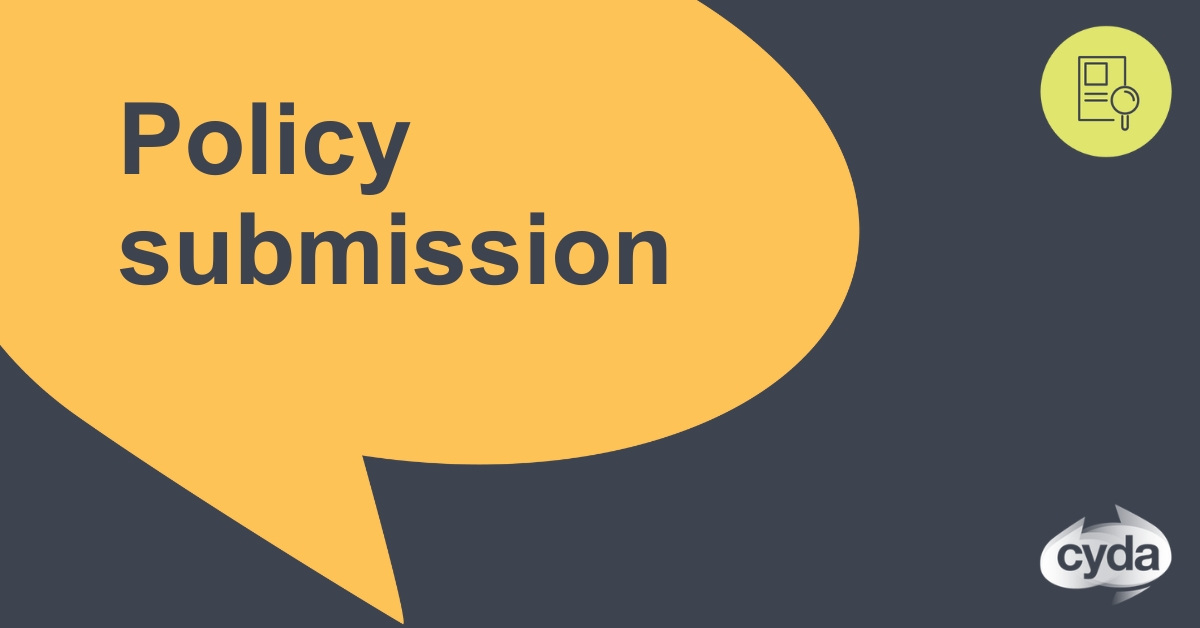
Resources for young people with disability
Starting to look for a job
A guide for young people with disability
Finding employment is empowering. It can help you build your independence, skills and relationships. Sometimes though, it can be hard to know what kind of job you would like to do, or if your employer is inclusive of people with disability. Here is a handy guide to help you get started!
Applying for a job
A guide for young people with disability
There are a few things you might need to think about when applying for a job, like how to write a resumé and cover letter. As a young person with disability you might also consider applying for roles that are specifically for people with disability. You might also want to think about when and how to bring up your access needs and ask for any adjustments you need.
Disclosing your disability at work
A guide for young people with disability
Knowing how, when or if you should tell your employer about your disability can be hard. There are many benefits to disclosing your disability. It can help your employer and coworkers better understand you, and make your workplace more inclusive and accessible. When are you obligated to disclose your disability? What information is confidential or private? Learn more in our handy guide to disclosing disability at work.
How to talk about your access needs to an employer
Communicating with confidence
You might already know what your access needs are, or you might have a new job and aren’t sure how accessible your workplace is. If you are a wheelchair user, your employer might need to provide accessible parking, or rearrange furniture. If you are blind or have low vision and work with computers, you might need large print materials or screen reading technology.
Know your rights: Learn about discrimination at work
A guide for young people with disability
As a young person with disability, you are protected by the Disability Discrimination Act. This makes it illegal for employers to treat you unfairly, or differently from your non-disabled peers, or to refuse to make reasonable adjustments in your workplace.
Useful links:
Learn how to find and apply for jobs
IncludeAbility: The Australian Human Rights Commission’s initiative to support people with disability to find meaningful employment. (Easy Read resources available)
Everyone can work: Support for people with intellectual disability to find work in open employment. (Easy Read resources available)
JobAccess: The Australian Government initiative to help people with disability find and keep jobs, get promoted to better jobs, upgrade or expand their workplace skills, and more.
Youth Central Victoria: Career advice for young jobseekers.
Royal Children’s Hospital guide on finding a job as a young person with a chronic health condition/disability.
Find out what career you want
Your Career: Website by the Federal Government that helps young people identify their study and career options.
Job Jumpstart: Australian Government initiative offering resources and activities to help you work out what jobs might suit you.
Youth Central Victoria: Career advice for young jobseekers.
Learn more about employment and your rights
Self-Advocacy@Work: Helps autistic people navigate the world of employment, understand workplace rights and develop self-advocacy skills.
Fair Work Ombudsman: Helping everyone in Australia to follow the laws that make all workplaces equal and fair.
JobAccess: The Australian Government initiative to help people with disability find and keep jobs, get promoted to better jobs, upgrade or expand their workplace skills, and more.
Disability Awareness: Offers free online Disability Awareness online training for employers, organisations and young people who want to better understand their rights.
Find job opportunities
The Field: An employment website connecting people with disability with organisations committed to inclusive hiring and building diverse teams.
Australian Network on Disability: Providing mentorships and internships for people with disability.
Transition to Work: Help into work, apprenticeships and training, or education for those aged 15 to 24 who left school early, or are having difficulty finding a job after school.
DREAM Spotlight Series
In the DREAM Spotlight Series, we talk to leaders with disability about their career highlights and thoughts on access and inclusion.
Sam Drummond
Sam Drummond talks about over-qualification and under-utilisation of disabled people in the workforce. Sam specialises in discrimination and human rights law. In his memoir, Broke, Sam talks about disability, non-traditional families and rural disadvantage.
Watch the full Q&A here 👇
Clare Gibellini
Clare Gibellini in a Q&A about career pathways and customised employment opportunities. Clare is on multiple boards and steering committees, including the Oversight Council for the National Autism Strategy and the NDIA Equity and Inclusion Reference Group.
Watch the full Q&A here 👇
Cherie Clonan
Join us for a Q&A with Cherie Clonan, founder and CEO of The Digital Picnic. Cherie Clonan is the founder and CEO of The Digital Picnic, and a proud Autistic woman. She is well known for her progressive approach to leading her team in her human-centric, neuroinclusive way.
Watch the full Q&A here 👇
Izzie's tips for an accessible workplace
Izzie takes us on a tour of an accessible work day at YDAN.
[Description: YouTube video of a young person with shoulder length brown hair and brown eyes, wearing a rainbow lanyard, taking us on a tour of their workplace. When the music plays, access tips pop up on the screen.]
The full written list of accessible workplace tips in the video can be found here.
What young people with disability say about employment
From the 2020 National Youth Disability Summit
The National Youth Disability Summit hosted by Children and Young People with Disability Australia (CYDA) was the first event of its kind in Australia and took place online for 5 days between 29 September and 3 October 2020.
Over 250 young people with disability attended. These are the key findings on Employment and Identity.
CYDA's research and reports on employment
We would love your feedback!
We are always looking for ways to improve! Let us know what you think about our website (the part about DREAM) by filling out a super-quick anonymous survey.


